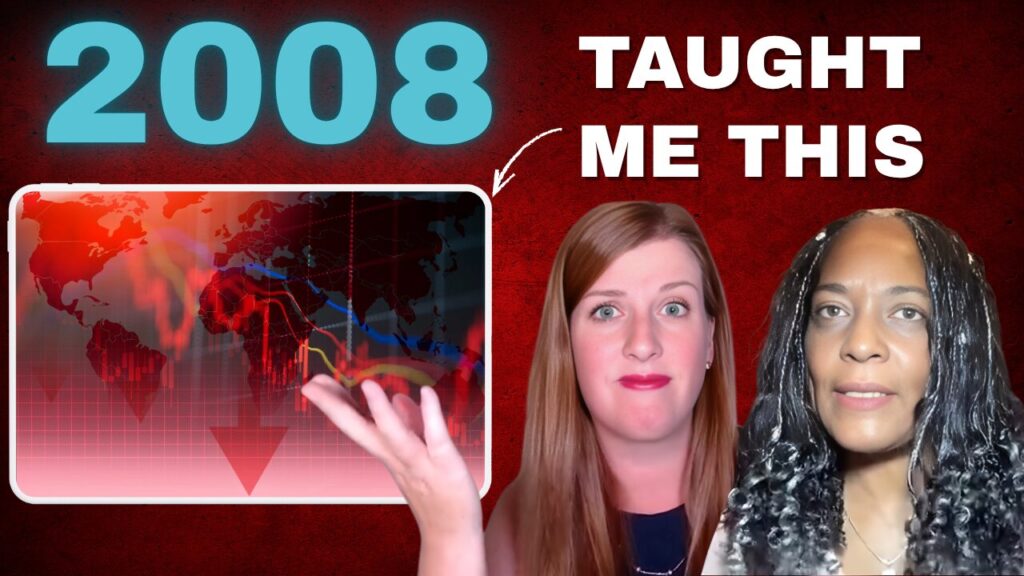
When I sat down with Dina Dent, I knew this conversation would resonate with every investor trying to scale without losing control. Dina’s journey from 30 years in nursing and healthcare leadership to building a diversified real estate portfolio is proof that systems, discipline, and mindset matter more than market timing. In this episode, she opens up about her early flips, surviving the 2008 crash, and how she fired her property managers to regain clarity and cash flow. If you’ve ever felt like your business was running you instead of the other way around, you’ll love what Dina shares about leadership, diversification, and true freedom through ownership.
For a complete guide on optimizing and scaling your real estate investments, download my Freedom Blueprint! This essential tool walks you through ten key steps for organizing a profitable property portfolio. Click here to get your copy today!
I’m so excited for everything you’re going to share. For people who may not know your background, can you give us a quick overview of your investing portfolio and how your real estate journey began alongside your executive career in healthcare?
Yes, I am a nurse. I’ve been an RN for over 30 years and in administrative healthcare leadership for well over 15. At this point in my life, I have a consulting company called Medconsult, but I’ve always been intrigued by investing, even as a young child—whether it was stocks, real estate, or commercial property. I started investing early. I was a staff nurse working in critical care and emergency departments, and I got the investing bug. I started with fix-and-flips and wholesaling. When the 2008 financial crisis hit, it forced me to completely reset my life.
What I love about that is you started investing early—when it probably wasn’t easy to set money aside—and you did it while growing in a demanding executive career.
Yes. I’ve always loved nursing. It’s a career that’s about service and leadership. As a nurse leader, you manage diverse teams—physicians, therapists, nutritionists, environmental staff—you have to know how to lead across departments. I loved that. During that time, I bought my first home. I was in my 30s, and I remember being so excited but also so frustrated by the process. They kept asking for the same documents again and again. I thought, why does this take so long? That curiosity led me to start investing. I did a few fix-and-flip projects with friends. They handled construction; I handled the financing. But even then, I was frustrated—why is this taking 60 days? Close the deal in 30!
So I decided to figure it out myself. I got certified as a loan officer while working full time as a nurse. I worked for a brokerage with a 60/40 split and started closing loans on the side. It was a way to speed things up and learn the lending side of investing. But when the mortgage crisis hit, everything changed. I had four or five properties at the time, and my rates jumped from 5% to 12%. Rent wasn’t covering the payments, refinancing wasn’t possible, and I had to short-sell a few homes. It was devastating. I was working 16–20-hour shifts—days, nights—just to stay afloat.
Eventually, I had to let go of what I couldn’t afford. I kept one property—the one I lived in—and that decision changed everything. People often say not to buy an investment unless the rent covers the mortgage, but that’s not always true. For two years, I paid $200 a month out of pocket to keep that property. Today, that same home is my bank. I’ve owned it for over 25 years, and I can pull equity whenever I need capital for new deals. From there, I began rebuilding—buying more properties across multiple states.
I’ve owned property in Louisiana, Texas, Philadelphia, and Virginia—single-family homes, duplexes, triplexes, even commercial and construction projects. Every market is different. Every closing is different. And now, my focus is scaling—moving from single-family homes into multifamily investments.
You’ve built all of this while balancing an intense professional career. How has your leadership experience influenced the way you approach investing?
My leadership experience has shaped everything. In healthcare, you can’t do anything alone—you have to trust your team. My philosophy has always been to hire people who are smarter than I am. I love developing people, helping them grow, and creating leaders who can eventually take my place. That’s how I ran my teams: empowering, not micromanaging.
But I’ll admit, in real estate I’ve had to learn to let go of control. I can be a bit of a micromanager with my properties. Recently, I decided to fire all my property managers and take over management myself. It was a big change, but I realized I was paying 8–10% in management fees and still fixing the same problems. I’d see repair charges for the same refrigerator over and over again, often from different vendors. I was essentially paying to stay frustrated.
When you’re working 50–60 hours a week, it’s easy to overlook those things on your P&L sheets. Now, managing directly forces me to focus. I’ve streamlined my processes, and it’s helping me feel more in control of my investments.
One thing that’s made a huge difference is having a virtual assistant. My VA supports my consulting company—she handles social media, my website, coaching agreements—all the operational things that used to bog me down. I honestly don’t know what I’d do without her. She’s freed up my time to focus on managing my portfolio. I’m planning to hire another VA dedicated solely to real estate operations because I know I can’t scale sustainably without systems.
That’s so smart. It’s true—great property managers are hard to find, and the combination of self-management with virtual support is powerful. You’ve also built experience across many investing strategies—flips, long-term rentals, syndications. How do you decide where to focus next?
I use diversification as my guiding principle. The 2008 crash taught me that. I’ve been working since I was 12 or 13, so when I became a nurse, I already had a 401(k). I always contributed aggressively, and I used those funds strategically for down payments on investment properties. I didn’t have family helping me financially—I built my portfolio from scratch.
Now, my strategy is split into three parts: one-third stocks and bonds (with some crypto), one-third syndications, and one-third direct real estate. My “buy box” depends on location. I invest where I understand the market—places I’ve lived or worked like Atlanta, Philly, Texas, and Louisiana. For syndications, I vet every opportunity personally and only invest with people who come highly recommended by trusted peers.
My first big syndication was with a group of cardiologists introduced by a colleague. I’d been following their work online, and once I realized my colleague actually knew them, I asked for a connection. We had an immediate conversation, and I felt comfortable investing with them. Since then, every syndication I’ve joined has come through relationships and referrals.
That’s a smart system—trust and relationships first. You’ve managed to scale across markets and asset types. How do you know when it’s time to grow again without losing control?
It’s a mix of opportunity and readiness. My frustration with property management pushed me toward hard assets again. I’ve wanted to move into multifamily for years, and now I finally have the right team and confidence to do it. I’m surrounded by like-minded women investors in my mastermind group who share knowledge and support. That community has helped me move faster and smarter.
After multifamily, I want to expand into mixed-use properties—developments that combine residential and commercial spaces. I’ve been watching for the right deal, and when it comes, I’ll be ready.
You analyze a wide range of investments, from long-term rentals to crypto. How do you approach risk?
I do a lot of reading and listen to tons of podcasts. I’m confident in my own due diligence, but I also believe in collaboration. After I analyze a deal, I share it with several people—sometimes even those who don’t invest in real estate. They bring fresh perspectives, ask different questions, and help me see risks I might miss. Then I share it with experienced investors who understand the numbers. That combination of insight helps me make informed, confident decisions.
I love that. People who think differently often help us see blind spots. So, I have to ask—what does freedom look like for you now?
Freedom, for me, is being able to work from anywhere. It’s waking up on white sand by blue water, opening my laptop, and running my business on my own terms. It’s not being tied to a boss or a pension plan. Freedom means making money while I sleep, being available for my family when they need me, and having choices. That’s what I’ve built my portfolio around—flexibility and control.
Let’s wrap up with a few quickfire questions. What’s a book that has changed the way you invest?
I’ll give you a few. Walk Through Fire by Sheila Johnson Lee—it’s an incredible leadership book about resilience. She’s the first Black female billionaire and owns multiple resorts and sports team shares. Her story inspired me deeply. Money for Tomorrow by Whitney Elkins-Hutten is another great one—it covers everything from insurance to hard assets in a simple, practical way. And Who Not How by Dan Sullivan completely changed how I delegate and scale.
I’m also a huge podcast listener. John Hope Bryant’s Money and Health/Wealth is excellent, and I regularly tune into shows by other women investors in my network. The education is out there if you’re willing to learn from others’ experiences.
If you could go back in time, what would you tell your younger self?
Never sell a property. Ever. Figure it out. Live in it. Hustle through it. Do what you need to do—but don’t sell. I know there are different schools of thought, but that’s mine. Also, be cautious about going into business with family. Make sure you’re aligned on values and expectations. If not, it can get complicated fast.
I completely agree. Business partnerships are like marriages—you have to vet them thoroughly.
Exactly. Be cautious. Ask the right questions.
Dina, thank you so much. You’ve shared so much wisdom—from your time in healthcare leadership to your growth as an investor. It’s clear that your discipline, systems, and perspective have shaped real success.
Thank you. I’ve loved this conversation. For anyone who wants to connect with me, I’m on Instagram, Facebook, and LinkedIn at MedConsult LLC, and my website is yourmedconsult.com. I love talking about investment, leadership, and development—and I give out free advice all the time!
Thank you again, Dina. I know this will inspire so many investors who want to scale without sacrificing their freedom.
